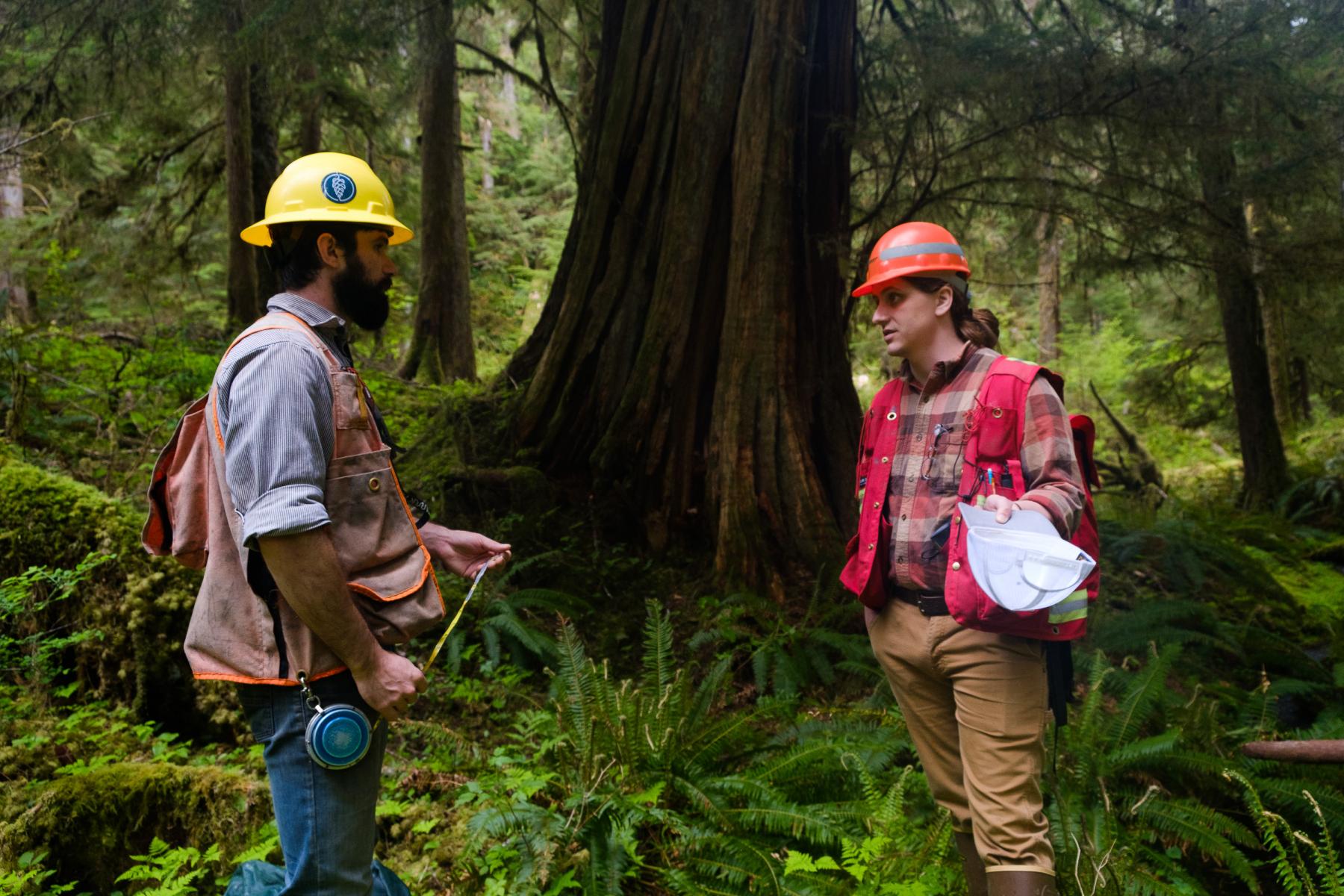Our Mission
Resilient Forestry’s mission is to achieve the greatest outcome based on the best available science for our ecosystems and their surrounding communities.
Our purpose is to clearly share our knowledge and expertise with ecosystem managers to facilitate meeting functional ecosystem management objectives over the long term. We strive to translate the latest science into practical solutions that increase the efficiency and effectiveness of management actions.
Our Story
Resilient Forestry was formed in 2018 in response to a regional need for ecologically-focused, science-driven consulting forestry. The firm is led by Sean Jeronimo, PhD and Miles LeFevre, MS each of whom has over a decade of experience in forest management, research, and analysis across the Pacific Northwest and beyond. Resilient Forestry focuses on conservation-oriented forest management, collaborative and multi-stakeholder forests, forest management on public land, and forest ecosystem analysis.

Our Approach to Ecosystem Management
We believe that the most effective forest management occurs at the intersection between the workings of ecosystems and the values we ascribe to them. All of Resilient Forestry’s senior staff are both practicing foresters and ecosystem scientists with records of publishing peer-reviewed primary research. As a bridge between science and management, we have strong foundations on both sides. Our forest management philosophy emphasizes understanding the ecological processes driving forest function and development, including interactions among many varied biotic and abiotic factors. We use this understanding to design management strategies that simultaneously meet multiple – sometimes conflicting – objectives.
As active participants in the ecology of our planet, we all depend on our forests. Not only for the wood they grow to build our homes, but for the clean air they produce, the carbon they store, and the water they provide. This critical natural capital has no substitute. In the past century, our understanding of the complex and interconnected ways that forests function and the services they provide us has expanded tremendously. We do not doubt that this expansion will continue.
“To keep every cog and wheel is the first precaution of intelligent tinkering.”
-Aldo Leopold
We approach forest management from the humble perspective that the values of our forests by society in the future may not be reflected in the values of our society today. To reduce risk and increase future options, it is critical we manage forests in a way that maintains their integrity in terms of their biota and capacities. Doing so is not only the best possible way to provide for the many ecological and social needs of today, but also creates the greatest range of options for the uncertainties of the future.
From early in our careers we were taught that “forestry is, before anything else, a social science!”, and it has proven true in our work time and again. While we love to measure trees, the most important part of our job is always understanding people: how they relate to one another and how they engage with and fit into the natural world. For us, the trickiest problems and most inspiring solutions sit at the nexus of society and the ecosystems we live among.